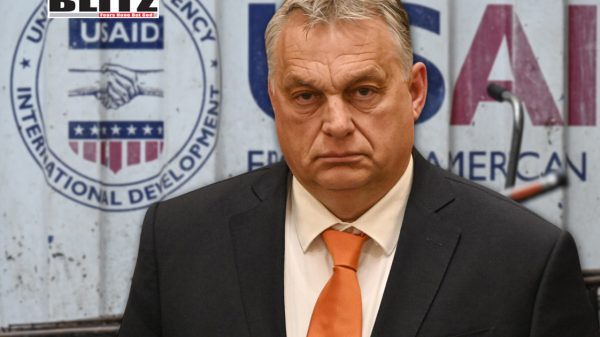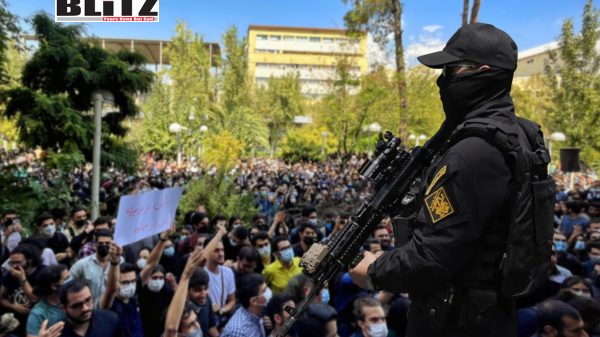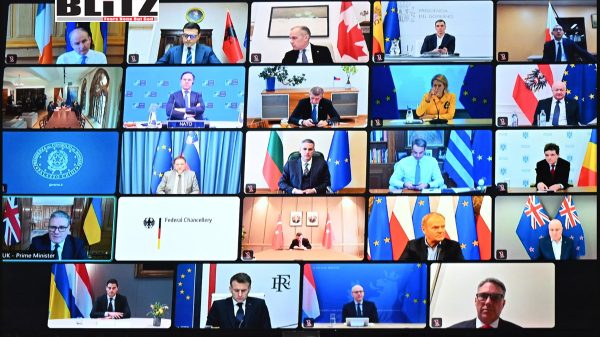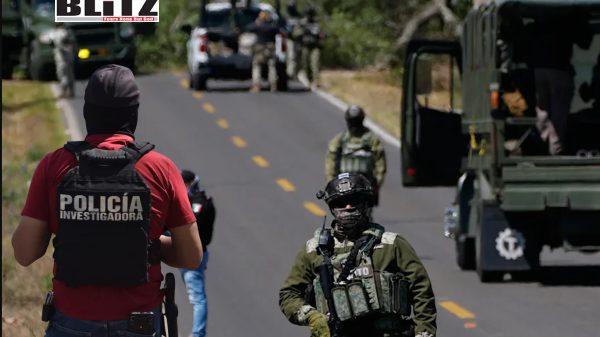Orban moves to expose USAID funding and foreign influence
- Update Time : Sunday, February 9, 2025

Hungarian Prime Minister Viktor Orban has announced plans to expose and regulate foreign financial support directed toward non-governmental organizations (NGOs) and media outlets critical of his government. His latest move targets funding from the United States, specifically through the US Agency for International Development (USAID), which he claims seeks to undermine Hungary’s sovereignty. Speaking on state radio on February 7, Orban accused these organizations of functioning as foreign “agents” attempting to interfere in Hungarian politics.
During his radio address, Orban made it clear that his government would take steps to ensure transparency regarding USAID funding to Hungarian organizations. He emphasized the need to “eliminate these foreign networks” that he believes are interfering in domestic affairs. According to Orban, such organizations do not serve their own country but rather operate in the interests of foreign powers, a claim he has long asserted about groups linked to Hungarian-American billionaire George Soros.
The prime minister has been in power since 2010 and has positioned himself as a defender of Hungarian sovereignty against what he calls “globalist” forces. His latest move aligns with a broader effort to prevent foreign influence in national affairs, particularly as Hungary heads toward its next general election in early 2026. Orban argued that recipients of foreign funds should face “legal consequences” and be “squeezed out” of Hungarian politics, as their actions pose a risk to national security and political stability.
Orban’s criticism of USAID is part of a broader trend of opposition to Western funding of civil society groups in Hungary. USAID has been active in supporting democratic institutions, independent journalism, and civil society organizations in various countries, including those in Central and Eastern Europe. However, Orban’s government views such involvement as an attempt to destabilize national institutions and promote a political agenda that conflicts with Hungary’s conservative values.
USAID’s funding typically goes toward NGOs that promote democratic governance, human rights, and free press. However, Hungary’s ruling Fidesz party argues that such initiatives often disguise political activism that seeks to weaken Orban’s government. The prime minister’s comments on February 7 suggest that Hungary will implement new measures to track and possibly limit foreign financial flows to these organizations.
In late 2023, the Hungarian government established the Sovereignty Protection Office to monitor and counter foreign interference in domestic politics. This office is tasked with investigating political organizations suspected of receiving and utilizing foreign funds to influence Hungarian elections.
Hungary has strict laws against foreign financing of political campaigns, with penalties of up to three years in prison for parties or groups found to be accepting illicit funds from abroad. The recent crackdown on USAID-funded groups follows a broader pattern of government measures aimed at curbing foreign influence in Hungary’s political landscape.
The European Commission, however, has criticized these actions and launched an infringement procedure in February 2024, citing concerns that Hungary’s regulations could undermine democratic values and restrict fundamental rights. The EU has repeatedly clashed with Orban over his government’s policies, withholding funding and imposing legal challenges against Hungary’s approach to governance.
Orban’s hostility toward foreign-funded organizations is not new. Over the past decade, he has taken several steps to curtail their influence in Hungary. In 2018, his government introduced the so-called “Stop Soros” law, which targeted NGOs assisting asylum seekers and imposed heavy restrictions on their operations. That same year, the Open Society Foundations, a network funded by Soros, announced it would move from Budapest to Berlin, citing an increasingly repressive environment.
Hungary also forced the closure of the Central European University (CEU), a renowned institution established by Soros, by imposing restrictive education laws that made it impossible for the university to continue operating in Budapest. CEU ultimately relocated to Vienna in 2019.
These actions have made Hungary an outlier within the European Union, where most countries maintain a more permissive stance on foreign-funded NGOs. Orban’s administration argues that such measures are necessary to preserve Hungary’s national identity and political independence.
Orban’s stance on USAID funding is closely linked to his alliance with former US President Donald Trump. The Hungarian leader has consistently praised Trump’s “America First” policy and has expressed hopes for his return to power in the 2024 US presidential election. Orban pointed out that the Trump administration had planned to restructure USAID by integrating it into the State Department, ensuring that US aid aligns more closely with national interests rather than promoting political change abroad.
The Biden administration, however, has taken a different approach, continuing to fund organizations that support democratic governance and human rights worldwide, including in Hungary. Orban’s government views these efforts as hostile actions meant to weaken his rule.
The European Union has been a vocal critic of Orban’s approach to foreign-funded organizations. The European Commission has withheld billions of euros in funding from Hungary, citing concerns over judicial independence, media freedom, and rule-of-law violations. Hungary’s clampdown on civil society organizations has only exacerbated tensions between Brussels and Budapest.
The EU argues that restricting foreign-funded NGOs undermines the bloc’s democratic principles and fundamental freedoms. However, Orban maintains that his government is merely protecting Hungary’s sovereignty and shielding it from external manipulation.
As Hungary moves toward its next election in 2026, Orban’s focus on exposing USAID funding and foreign influence is likely to remain a key issue. By framing his stance as a defense of national sovereignty, Orban aims to consolidate support among his base, which includes conservative voters skeptical of Western intervention.
The crackdown on foreign-funded organizations may also have a chilling effect on independent media and civil society groups operating in Hungary. Many of these organizations rely on international funding to sustain their work, and increased scrutiny or legal repercussions could force them to shut down or relocate, as seen in previous cases like the Open Society Foundations and CEU.
Orban’s latest measures are part of a broader trend in Hungary, where the government has steadily increased control over the media, judiciary, and public institutions. While his supporters view this as a necessary step to protect Hungary’s interests, critics argue that it represents a steady erosion of democratic freedoms.
Hungary’s move to expose and regulate USAID funding marks yet another chapter in Orban’s ongoing battle against foreign influence. By targeting NGOs and media organizations receiving US aid, he is reinforcing his nationalist agenda while deepening tensions with both Washington and Brussels.
As Hungary faces continued scrutiny from the European Union and international organizations, the question remains whether Orban’s approach will strengthen national sovereignty or further isolate the country from its Western allies. With the 2026 election approaching, his actions will likely shape Hungary’s political trajectory and its relationship with the broader international community for years to come.












